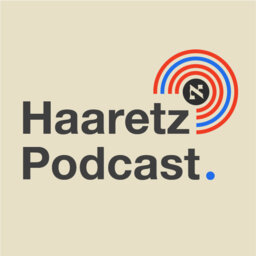'Ultra-Orthodox Israelis are at the peak of their power and they don't pay a price in war'
The controversy in Israel over the exemption of ultra-Orthodox yeshiva students from military service "has reached a boiling point," former Haaretz journalist and author Yair Ettinger tells host Allison Kaplan Sommer on the Haaretz Podcast.
Prime Minister Benjamin Netanyahu has continually delayed confronting the issue in his years in power, Ettinger notes. But this week, the High Court's deadline for either enshrining exemptions in legislation or enlisting yeshiva students expired. And it did so during a war in which Israelis serving in the army have made tremendous sacrifices, and amid severe discontent with Netanyahu's coalition, which depends on ultra-Orthodox support.
And so, Ettinger says, Israelis who disliked but tolerated the ability of the ultra-Orthodox to avoid army service in the past have now "run out of patience."
"There is a big dissonance in Israel right now regarding the Haredim. Why? Because they are at the peak of their political power, and yet they don't share the duties [of defending the country]." On one hand, "they are the government. They have been the senior partners of Netanyahu for many, many years. And now, when we have an existential moment, and we are fighting a really difficult war, they don't pay any price."
Ettinger, author of the book, "Frayed, the Disputes Unraveling Religious Zionists," also looks at how the judicial overhaul battle is inextricably intertwined with the military exemption controversy, and discusses the growing rift in Orthodox society over religion and society, the role of women and tolerance of LGBTQ individuals.
That rift, he says, is exemplified at the Pride Parade each year, where "you can see many religious Zionists marching and many others [among] them protesting against the parade."
He also notes that while the Gaza war has underlined the cracks between secular Israelis and their Diaspora counterparts, "the opposite is true" among the Orthodox. "Today, they are closer than ever," Ettinger says.
 Haaretz Podcast
Haaretz Podcast


